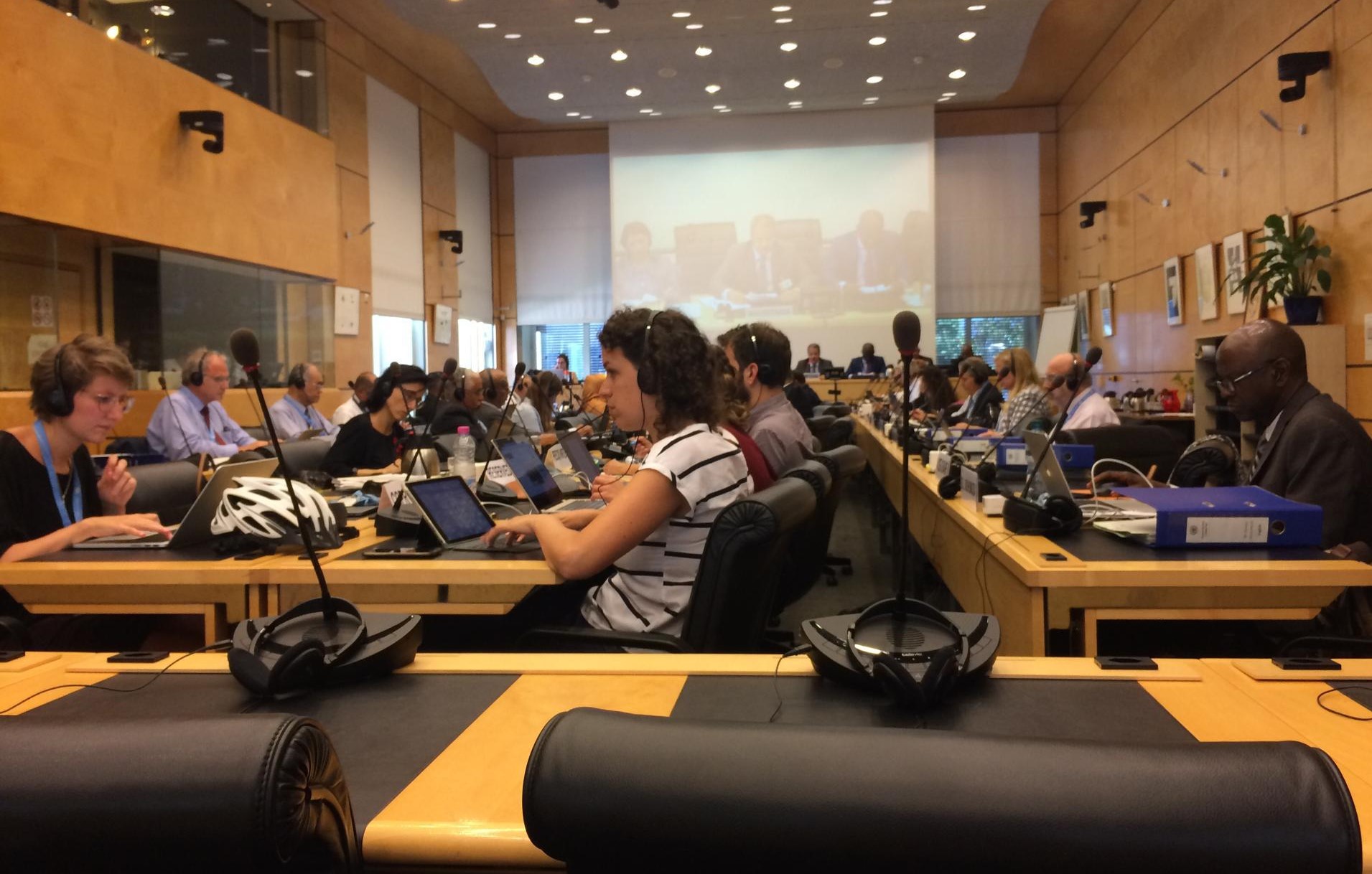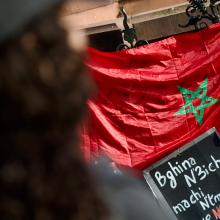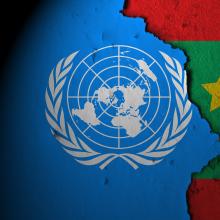July 11, 2019

Important update: on July 25, 2019, the Committee published its concluding observations following the review of Mauritania’s second periodic report. The authorities will have until July 2021 to provide information regarding the implementation of key recommendations, namely with regard to the fight against impunity and past human rights violations, harmful practices against women and girls, the lack of respect for freedom of expression and the absence of protection for human rights defenders.
On July 4 and 5, 2019, the UN Human Rights Committee examined Mauritania’s second periodic report to assess the human rights situation in the country. The committee monitors the implementation of the International Covenant on Civil and Political Rights (ICCPR), which Mauritania ratified in 2004.
Ahead of the review, MENA Rights Group presented a shadow report to committee members, focusing on three areas of concern: impunity for violations committed against Afro-Mauritanian soldiers or “passif humanitaire”, derogations from the law against torture, and undue restrictions on fundamental rights and freedoms.
Firstly, in what is commonly referred to as the passif humanitaire, in the 1980s and 1990s, hundreds of Afro-Mauritanian officers were subjected to summary executions preceded by torture and incommunicado detention. During the review, the Mauritanian delegation was asked by committee members to amend or repeal Law No. 93-23, which grants amnesty to members of the security forces for any offences committed in the performance of their duties between 1989 and 1992. Several victims and members of civil society who attended the Human Rights Committee review deplored the absence of political will expressed by the delegation to ensure accountability for these crimes.
Additionally, the Human Rights Committee echoed concerns raised by MENA Rights Group regarding Mauritania’s lack of adherence to international human rights standards when it comes to the prevention of torture. Mauritania adopted an anti-torture law in 2015, however, provisions of the law are often disregarded in practice. For example, the law guarantees access to a lawyer from the outset of detention, but the committee observed that that this obligation is often disregarded, especially in impoverished areas of the country.
The UN experts also highlighted the discrepancies between ordinary law and the 2010 Anti-Terrorism Law. While the Code of Criminal Procedure provides that the duration of police custody may be up to 96 hours, in terrorism-related cases, this period can be extended for up to 45 working days, without detainees being provided with access to a lawyer or being brought before a judge.
Furthermore, the committee raised concerns over violations of fundamental freedoms, including the rights to freedom of expression and freedom of association, which remain commonplace in Mauritania.
While the State Party affirmed during the review that press offences are no longer penalised, MENA Rights Group’s report highlighted that the authorities continue to rely on the Penal Code to prosecute journalists and activists critical of the government.
Moreover, several committee members raised their concerns over the 2018 amendments to Article 306 of the Criminal Code, which renders the death penalty mandatory for acts qualified as apostasy. The introduction of this provision followed the case of Mohamed Cheikh Ould Moukhaitir, a blogger who criticised the use of religion to legitimise discrimination against minorities in Mauritania.
Moukhaitir was convicted of apostasy and sentenced to death in December 2014, before a court reduced his punishment to two years’ imprisonment in 2017. Although he should have been released immediately, he continues to be held incommunicado to date. Responding to several questions on his fate and whereabouts, the Mauritanian delegation claimed that Moukhaitir was administratively detained for his own safety and for the safety of the general population, which needs to be protected from public disorder.
In addition, the committee addressed the fact that the legal framework governing associations is not in line with international standards. The 1964 Law on Associations requires prior authorisation from the executive in order to form an association, and applications can be rejected on vague grounds such as "anti-national propaganda" or “negative influence on the people’s mind”.
The obstacles faced by the Resurgence of the Abolitionist Movement (IRA), an anti-slavery association, to obtain legal status was raised by the committee. However, the State Party replied to questions about the situation of the IRA by stating that the anti-slavery association was spreading “propaganda of racial or ethnic character” – confirming therefore the arbitrariness of registration denials for associations that are considered as too critical of the state.
Similarly, the right to peaceful assembly is restricted by the 1973 Law on Public Meetings, which prohibits street rallies, and by the Criminal Code, which criminalises “unarmed gatherings”. Unauthorised demonstrations are regularly dispersed with a disproportionate use of force on the basis of the prohibition of “unarmed gatherings”.
With the aim of improving the human rights situation in the country, the Human Rights Committee is expected to deliver a list of recommendations to Mauritania by the end of its 126th session. In light of the slow progress made since the country’s initial review in 2013, the Mauritanian authorities should use this opportunity to accelerate their implementation of the ICCPR and correct the many shortcoming identified by the Committee and civil society.






